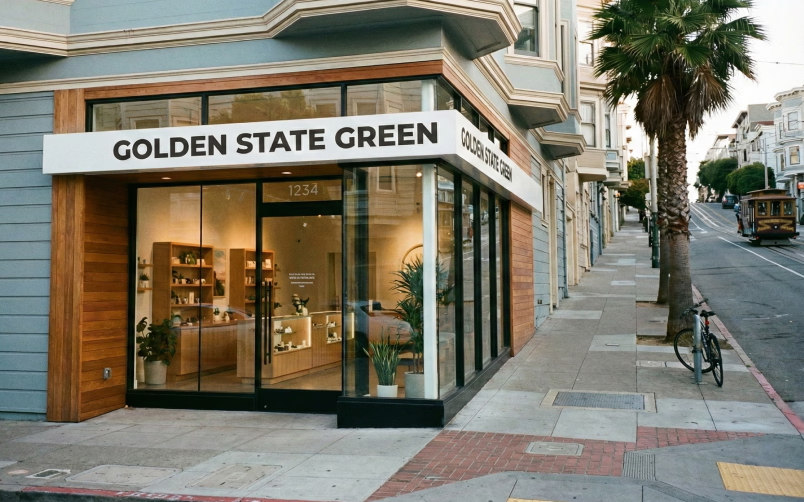How to Open a Dispensary | 7 Ways to Finance Your Store

The cost of opening a cannabis dispensary is high regardless of where in North America you are. Prices vary from state to state, but the differences are marginal compared to the average. When you factor in costs like license fees, payroll, and leasing, opening a cannabis dispensary can cost anywhere from $250,000 to two million dollars.
When exploring how to open a dispensary, you need to draw up a well-researched budget and a feasible financing plan if you are ever going to have a successful launch.
If you need to find investors to finance your dispensary, you should start thinking about that right from the off. In most states, you will not be able to get a license if you cannot prove that you have access to a source of funds to finance your dispensary.
Another reason why budgeting and financial planning is essential before opening a cannabis dispensary is the limited access to financial services for cannabis businesses, especially in the US.
Cannabis businesses in the US fall into a grey legal area because they are still not permitted on a federal level even though they have achieved legality in some states. This makes it tricky for banks and other financial institutions to give the same financial services to cannabis businesses that they offer for companies that are legal under federal law.
Most banks and financial institutions are fearful of being penalized for serving entities that are not legal under federal law. While national sentiment in the US is currently for the nationwide legalization of cannabis, many financial institutions don't want to gamble and get fined since the federal government has not legalized cannabis consumption and business.
The SAFE Banking Act, which would allow banks to offer financial services such as credit lines, underwriting, and business accounts for cannabis businesses, hasn't passed the Senate yet. This is why cannabis businesses in the US suffer more liquidity issues than any other industry and why you need to research costs early, draft a reasonable budget and find investors who can plug the liquidity gaps that are bound to arise in running the dispensary.
How much does it cost to open a dispensary?
When calculating the cost of opening a dispensary, you should divide the costs into two main categories—the upfront costs and the ongoing costs—especially for the first year of operations. Most people will only consider upfront costs like licensing and leasing fees. However, the costs that make dispensaries expensive are the ongoing costs you incur monthly like rent, utilities, cost of the product, and payroll.
These fixed and variable ongoing costs should be taken into account before starting your dispensary in case your first year of business is slow. Should your business take a while to make sufficient revenue to cover its costs, you need to have enough reserves to cover rent and payroll. This is why the first year's operational expenses should be included in your startup costs.
As mentioned above, the costs of starting a dispensary will vary based on the location and size of your dispensary. So we cannot give you exact figures. For example, while the minimum cost of starting a dispensary in Arizona is $150,000, it is $250,000 in Nevada. We can give you nationwide averages that will provide you with a ballpark of what your startup expenses might be. With that in mind, we can jump into what the cost estimates would be.
The costs to open a dispensary may include.
As mentioned above, the cost of opening a dispensary could be anywhere from $250,000 up to two million dollars. Some of the big-ticket items in these costs include $250,000 for payroll annually, $100,000 in annual rent, and $50,000 in renovations when starting. These rent and renovation figures don’t include the security deposit you would have to pay to lease the location in the first place.
Another ongoing cost to consider is the cost of the product, which is about $1,500 to $1,800/lb. Below is a summary of all our estimates for the costs you would incur to start your dispensary;

From our estimates above, it could cost about $1,050,000 to start and run a cannabis dispensary in the first year. As a proportion of this figure relates to ongoing costs, you might be able to offset some of it with the revenue you generate from product sales, but you can't count on those revenues during the budgeting phase.
While these are the costs that we can predict and estimate, there are other costs that we cannot. Expenses like the salaries for the directors and managers and the costs to secure supply chain contracts with growers and manufacturers are not easy to predict. These will depend on how well you can negotiate with suppliers and what products you intend to sell in your dispensary. Now that we have covered the startup costs for a dispensary, let us delve into the financing side of starting a cannabis dispensary.
What are 7 ways to finance a dispensary?
Business financing refers to the process of raising capital to finance your business. As mentioned in the introduction of this chapter, getting funding for your cannabis dispensary is essential because cannabis dispensaries are expensive to set up, and it is almost impossible to get a license without a source of funds. Furthermore, cannabis businesses in the US cannot rely on the standard financial services from the banking industry that other businesses enjoy. That makes accessing financing beforehand even more critical for cannabis business startups than for most of the other industries.
However, despite not having access to mainstream financial services from banks, cannabis businesses still have various options to choose from should they need to raise capital. We have prepared a list of the most likely sources of financing for a cannabis dispensary that you can consider for your dispensary.
1 - Self-funding.
This is the best financing solution but is also the least likely source of funding. Most entrepreneurs don't have a million dollars of their own to commit to starting a dispensary. Even for those who do, assuming all the risk of a business in a precarious industry like cannabis would not be advised. It is best to share the risk with willing and capable investors.
2 - Friends and family.
Fundraising from friends and friends could help you avoid all the stress that comes from raising capital from investors who are only interested in making a return. Friends and family will most likely be interested in seeing you succeed, so they will invest primarily in you, the entrepreneur, more than in the idea.
Cannabis entrepreneurs frequently turn to friends and family because the banks won't finance cannabis business until it is allowed by federal law. However, money from friends and family can also be challenging to manage, especially if the investment fails to produce business success.

3 - Business loans.
As mentioned earlier, most banks won't lend to cannabis businesses. However, some cannabis businesses can borrow from credit unions and cannabis-friendly banks. Cannabis businesses in cannabis-friendly states like Colorado, Washington, and Oregon can try their luck with the smaller banks in their areas which might be more willing to take their business than the bigger banks.
Fortunately, firms like Safe Harbor Private Banking, Dama Financial, and Nature Pay offer merchants financial services and help them locate compliant banks. There are also some states with robust regulations that support safe banking for cannabis businesses. These states include New York, Massachusetts, Florida, Illinois, and Minnesota.
4 - Business partners.
With the recent hype around cannabis businesses, many investors are lining up for their opportunity to invest early in the sector before it gets more regulated and structured. There are many investors who will be compatible with your interests as an entrepreneur. The difficulty will be in finding them and convincing them to choose you over your competition.
To increase your chances of finding an investing partner offering you favorable terms, you should make sure to keep accurate accounting records, have internal SOPs and standard reporting. It would help if you also wrote a detailed business plan, which we covered in the previous chapter.
5 - Cannabis specific investors.
Even though the cannabis industry is relatively new, a few firms and funds are committed to investing in cannabis businesses like dispensaries. However, these firms will typically lend to cannabis businesses at high interest rates for short periods of time. The debt is also typically structured as convertible debt, meaning the lender can convert their debt to equity in the business if they wish. The terms are so steep because the cannabis industry is still new, unregulated, and highly risky. The terms should improve as the industry matures and the volatility reduces. If you are interested in this option, here is a list of companies for you to look up;

6 - Selling equity.
There is a growing number of cannabis businesses running to penny stocks as a way to raise capital. Penny stocks are stocks trading at less than $5 a share. In most cases, they are actually below $1 a share. While you can raise some money this way, your dispensary would have to be up and running before you can qualify. Furthermore, the amount of capital you can raise is relatively limited since they sell for so little.
7 - Crowdfunding.
This is an exciting opportunity for cannabis dispensaries to raise capital. Crowdfunding refers to the process of raising small amounts of capital from large groups of well-wishers. This fundraising method is usually set up on crowdfunding platforms like Kickstarter and GoFundMe.
According to a new law from the federal government, individuals can contribute up to $2,000 for a campaign, meaning that businesses can potentially raise over a million dollars from a crowdfunding campaign. Furthermore, one of the main advantages of crowdfunding is its flexibility when it comes to pay-back terms.
For instance, Kickstarter is a rewards crowdfunding platform which means that the recipient of the capital has to give a reward, usually the product itself, to each of the contributors to the campaign. Other platforms like GoFundMe are donations crowdfunding platforms that don't require the recipient to give anything back to the donors.
There are quite a number of options for you to consider if you wish to get financing for your business. Financing is essential for startups since it can mean the difference between having enough liquidity to carry on through a rough period and having to shut down. In addition, healthy financing can help you do the marketing and community outreach you need to get clients and outperform your competitors.



